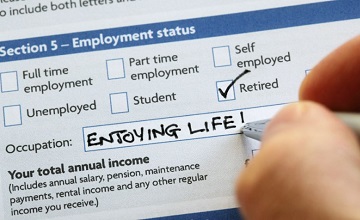There isn’t a single person in the world who hasn’t been impacted by COVID-19. As new case numbers start to slow in Australia, so too is our economy. This time presents new challenges as everyone gets used to a “new normal” and figures out the best way to weather the coming months. This article provides an overview of different measures the Federal Government has announced to support individuals and businesses, current market performance and what you should be thinking about when it comes to your finances and continuing to build long-term wealth. Government support for individuals and businessesThe Federal Government has announced two economic stimulus packages and the JobKeeper Payment to support individuals and businesses. An overview of the Federal Government’s measures announced to date is detailed below. Support for individualsThe Federal Government has announced a range of measures to help individuals. Eligibility to access these measures is determined on criteria such as your employment status or loss of income due to COVID-19. Some of the key measures include: two $750 payments to social security, veteran and other income support recipients (first payment from 31 March 2020 and the second payment from 13 July 2020); access to the JobKeeper Payment from your employer (if eligible) equal to $1,500 per fortnight; a time-limited supplementary payment for new and existing concession recipients of the JobSeeker Payment, Youth Allowance, Parenting Payment, and Farm Household Allowance equal to $550 per fortnight; early release of superannuation funds (see overview below); and temporarily reducing superannuation minimum drawdown rates (see overview below). Full details about the Federal Government’s measures to support individuals are available on the Treasury website. Early release of superannuationEligible people will be able to access up to $10,000 of their superannuation in the 2019-20 financial year and a further $10,000 in the 2020-21 financial year. To access your super early, you need to meet ONE of the following five criteria: You are unemployed You are eligible for the JobSeeker payment, Youth Allowance for jobseekers, Parenting Payment special benefit or the Farm Household Allowance You were made redundant on or after 1 January 2020 Your working hours have reduced by at least 20 per cent after 1 January 2020 You are a sole trader, and your business activity was suspended, or your turnover has reduced by at least 20 per cent after 1 January 2020 If you are considering early release of your superannuation, you need to consider what the potential long-term impacts may be to the growth of your super fund and retirement income. While $20,000 may not seem like a lot of money now, it could have significant compounding value if left in your fund. Understandably, people may not have any other choice to support themselves financially. Make sure you speak to a financial professional to understand your risks and if this is a suitable option for you. If you are eligible, you can apply for early release of your superannuation directly with the ATO through the myGov website. Temporarily reducing superannuation minimum drawdown ratesThe temporary reduction in the minimum drawdown requirements for account-based pensions has been designed to assist retirees who do not wish to sell their investment assets, while the value of those assets is reduced. The minimum drawdown rates have been temporarily halved. Support for businessesThe Federal Government has announced a range of measures to help businesses facing financial difficulty. Eligibility to access these measures depends on factors such as your turnover and how much your business’s revenue has decreased due to the COVID-19 pandemic. Some of these measures include: increasing the instant asset write-off threshold for depreciating assets from $30,000 to $150,000; allowing businesses with turnover below $500 million to deduct 50 per cent of eligible assets until 30 June 2021; PAYG withholding support, providing up to $100,000 in cash payments which allows businesses to receive payments equal to 100 per cent of salary and wages withheld from 1 January 2020 to 30 June 2020; and temporary measures to reduce the potential actions that could cause business insolvency. Full details about the Federal Government’s measures to support businesses and eligibility criteria are available on the Treasury website. How the banks are approaching home loansBanks have announced that homeowners experiencing financial difficulty can pause their mortgage repayments for between three and six months. It’s important to remember that, in most cases, interest will still be capitalised and added to your outstanding loan balance. When payments restart, your lender may require increased repayments, or the term of your loan may be increased. These are important factors you need to discuss with your lender. What should you focus on when it comes to personal finance?While it can be tempting to sell all your investments now as the market declines, this locks in your losses and puts your wealth in a weak position. If you haven’t already defensively positioned your investments, speak with a financial adviser about how to best adjust your investing over the coming months. You should also consider how to maximise your returns as the market recovers. Investing and building wealth is a long-term game. As such, you should be investing with a long-term time horizon in mind. What should I do next?During this time, you may face some challenges with your finances. Your ability, however, to understand the options available to you and what the current period means on a long-term basis is key to getting through this challenging time productively. Further, making well thought out decisions now will give you the strong foundations you need in your health and wealth as the world recovers and embarks on a new period of growth. Before you make any big changes to your financial situation, speak to us to obtain personalised advice for your unique situation. This is general information only























